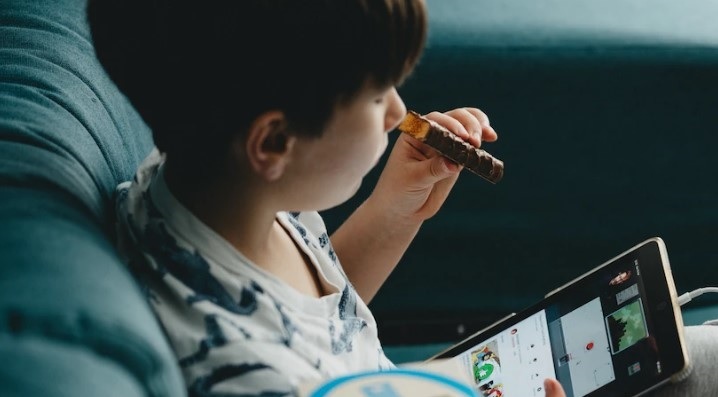Think about
Setting up an agreement about what your expectations are for when your children/young people when go on-line. The NSPCC have this handy leaflet with lots of ideas to get you started.

Tablets, mobile 'phones, TVs, laptops and computer games consoles are everywhere and most of us couldn’t do without them!
Our children are growing up with technology that is moving on super-fast and it can be difficult to keep up with the changes, the language that children use, the huge number of games and apps which are available and the potential risks.
Talking regularly with your child is the best thing we can do to keep them safe online, making it part of daily conversation, like you would about their day at school, will help your child feel relaxed. It also means when they do have any worries, they’re more likely to come and speak to you.
It’s never too early to talk to your child about what they do online and who to tell if they come across anything online that makes them feel worried, scared or sad.
CEOP have made 3 cartoons that are great for parents to support them in explaining to their children what to look out for online and who they should tell. You can watch the videos here.
Going online is a huge part of most young people’s lives so it’s important to talk to them about online safety. They regularly use different websites and apps from their parents, and it can be hard to keep up in this ever-changing digital world.
But the things that help keep children safe online are often similar to the things that keep them safe offline.
Setting up an agreement about what your expectations are for when your children/young people when go on-line. The NSPCC have this handy leaflet with lots of ideas to get you started.
Helping you protect your children online - a page created by CEOP to provide a realistic look at what it takes to be a better online parent. The site also has age specific advice for parents and carers of primary and secondary school age children. Read more at the CEOP's Parents and Carer's page
If you have seen something online that concerns you, please make a report to Child Exploitation and Online Protection now.
If you have a concern about a child, you can speak to one of our consultant social workers by:
The Children’s Portal is our online system that allows members of the public to share any concerns they have about a child by completing a secure form. You do not need to leave your details.
or you can contact the police by calling: